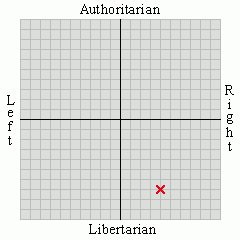Is stopping imports "Protectionism"?I'm no economist but it seems to me like there is literally a price to be paid here, which is that it instead exposes the American consumer to an onslaught of expensive domestically made goods. This is relevant because American consumers and American workers are actually one and the same. The worker must sometimes buy things and the consumer must sometimes work, yes? In other words the people Jobs Back want to protect will be hurt in equal measure by the higher prices, and to be fair they admit this.
Yes, absolutely. We have no other choice. This is the only way that we can "protect" the American worker from the onslaught of cheap imported goods.
Without cheap imports, won't goods cost more in the stores?Ah, so they want to protect inflation as well. Isn't that what it's called prices and wages both rise, making every unit of currency in the economy worth a less than it had been? Granted it will probably find an equilibrium at some point but in the near term at least this sounds inflationary. But Jobs Back claim it's necessary and free trade harms them.
Yes, the sticker-prices will be higher for many items in stores. But, incomes will also rise
because of an economic boom..
Why is "Free Trade" bad for the US economy? How does it cause jobs to be lost in the US?"At any price the Americans will pay." An important condition which Jobs Back swiftly forget about.
...
With Free Trade, an American company can move a factory to China, hire cheap Chinese workers, and then bring the manufactured products back into the United States to sell at any price the Americans will pay.
Once the factory has moved to China, the American factory worker no longer has a job.In other words the magic number that defines "any price the Americans are willing to pay" has just gone down. They said the company sells the imported goods at any price Americans are prepared to pay, and if that's not as high as it used to be because of lower incomes... Well, surely if my income goes down 10% and general prices go down by a similar amount the standard of living doesn't change? Surely it won't until the price reaches a level where the factory in China can't make a profit anymore and can no longer reduce it, at which point it'll be worth making the product in the US again? As I said I'm not an expert but I generally find my standard of living is best when my money goes further, not when everything costs more. I feel Jobs Back are thinking in absolute dollar terms rather than what a dollar is worth in terms of goods and services.
...
But, common sense dictates that Americans need jobs in order to keep buying the cheap imported goods and products.
When American workers lose their well-paying jobs, they have no income. They are forced to look for a new job.
Many times, if they are lucky enough to get a new job, it is often a lesser-paying job.
The only way to keep buying at the same level is to use a credit card, refinance their house, etc. Even this is only a short term solution.
Eventually, the unemployed or underemployed worker will have to cut back on his or her spending, lowering their standard of living.
Or maybe they're just pissed off because the Chinese may turn out to be better capitalists.


















